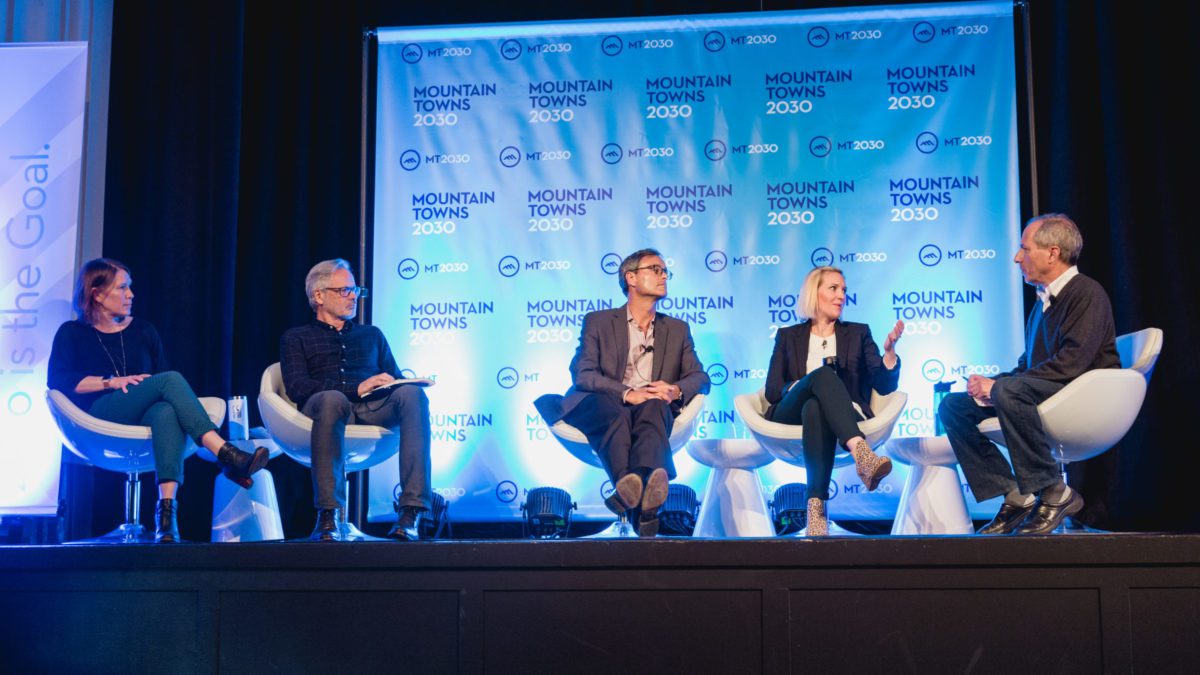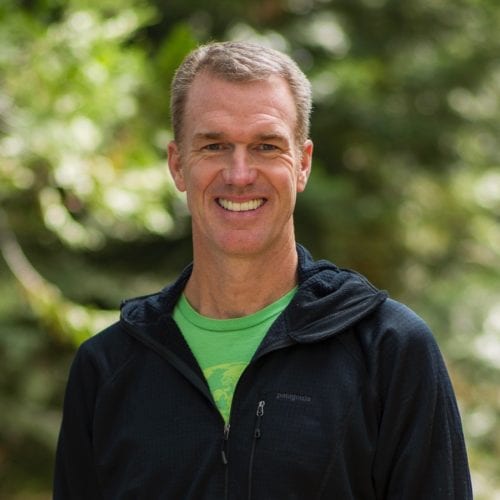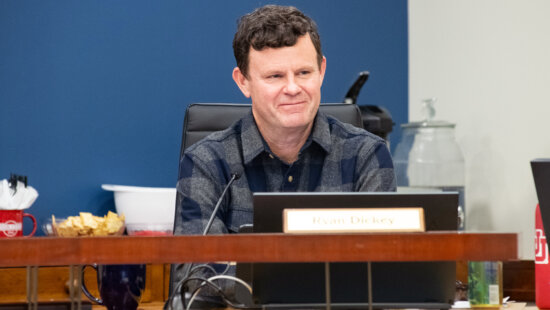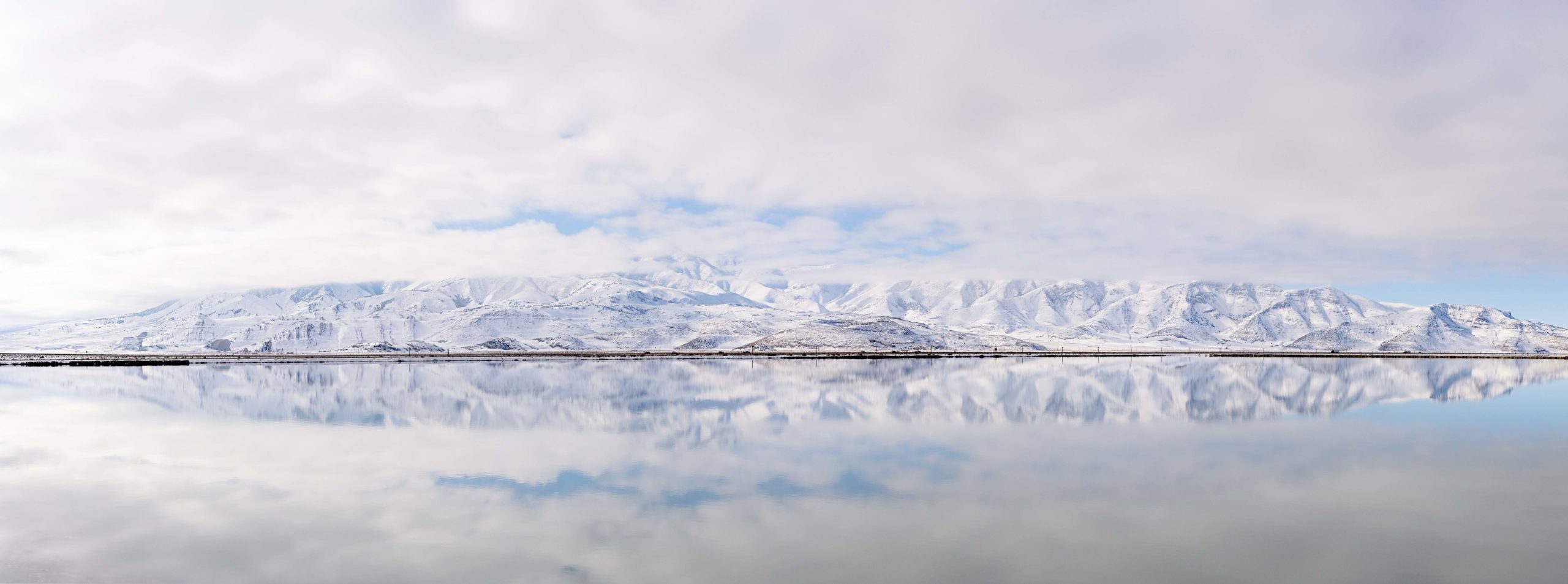Top Stories
Mountain Towns 2030 sees small towns making big impact to fight climate change

A panel discussion at the 2109 NetZero conference in Park City. From left: Laura Shaffer, POWDR; David Perry, Alterra Mountain Co.; Stephen Kircher, Boyne Resorts; Kate Wilson, Vail Resorts; Bruce Kasanoff, MT2030. Photo: NetZero conference
PARK CITY, Utah. — No need to gather in person to change the world. Mountain Towns 2030, a group of communities and residents working to reduce carbon footprints on an ambitious timeline, has forged ahead through COVID, connecting people around the world to work together in fighting climate change.
After forming in 2019 and hosting the first NetZero conference in Park City with the aim of bringing together mountain and outdoor towns whose economic health is climate-dependent, MT2030 canceled its planned followup and utilized the pandemic to get to (remote) work.
While the organization’s first year was about setting targets and figuring out how to get communities to commit to goals, this year’s work has centered on strategy. The result? The MT2030 Solutions Project, which is fostering data-sharing and collaboration on tangible, big-ticket contributors to global warming: public transportation, clean energy, and sustainable building and development.
Twenty-four communities in five states have signed on to participate in the Solutions Project so far; the goal this year is to get that to 50. Park City was the first to commit.
“We’re on the front lines of climate change,” said Chris Steinkamp, who has led MT2030 since January. “We realize that we have a lot at stake and a big role in helping solve climate change. Our mountain and outdoor communities depend on a stable climate and ecosystems.”
At a glance, small towns fighting a crisis as massive as global warming might seem a case of David vs. Goliath. But Steinkamp said he takes heart in knowing the realities of which industries generate the money that many mountainous, natural-resource-rich states depend on.
“We have such an economic voice; we might be small but our economic footprint is massive,” Steinkamp said.

The Solutions Project meets monthly; next month’s meeting will establish the top five challenges that each participating community needs to understand. The goal is to accelerate climate action planning by bringing diverse groups of people together to share information and build on each other’s best practices.
“If Park City solved one issue and Jackson Hole is challenged with it, let’s share our learning and data to get there,” he said. “We understand there are so many different stakeholders in all communities – non-profits, government, business and trade groups, corporations – and they’re not necessarily working hand in hand. Our goal is to be the convener of these diverse stakeholders.”
One example of how leaders in various arenas can be more powerful in tandem concerns perhaps the single most urgent ‘impact issue’ – clean energy. When large corporations add their names and voices to ask utility companies to provide cleaner energy options, or for state governments to examine energy standards and other policies, it adds a powerful incentive for those entities to do so.
Mayor Andy Beerman said he was optimistic and excited about growing momentum around the group’s work.
“On Earth day we should celebrate Park City’s net zero goal as both ambitious and necessary,” Beerman said. “Alone, it’s a drop in the global bucket, but by partnering with MT2030 and the Park City Community Foundation, we’ve engaged and inspired dozens of communities across the Rocky Mountain West to pursue similar goals. By sharing ideas, best practices and building collective courage, we are starting a movement—and that’s something to really celebrate.”
Beerman said he spoke earlier this week at a Swedish municipal conference about Park City’s efforts and progress fighting climate change – he called it exciting and an honor to share ideas with renowned climate advocate Greta Thunberg’s country.
“Truth is, we’re all looking to each other for good ideas – ‘crowdsourcing’ so to speak,” Beerman said.
The second NetZero conference is slated for 2022. Email Steinkamp here with questions.



















